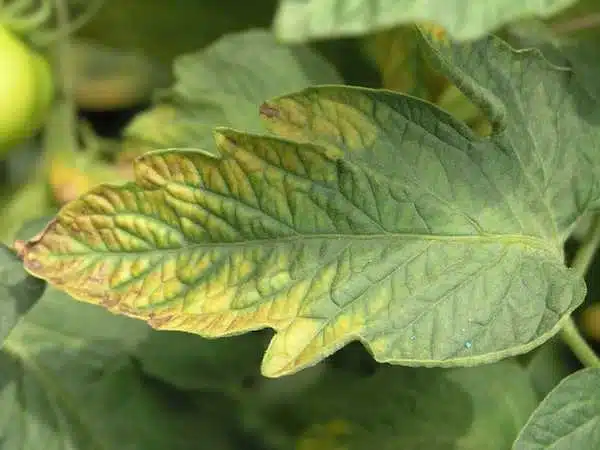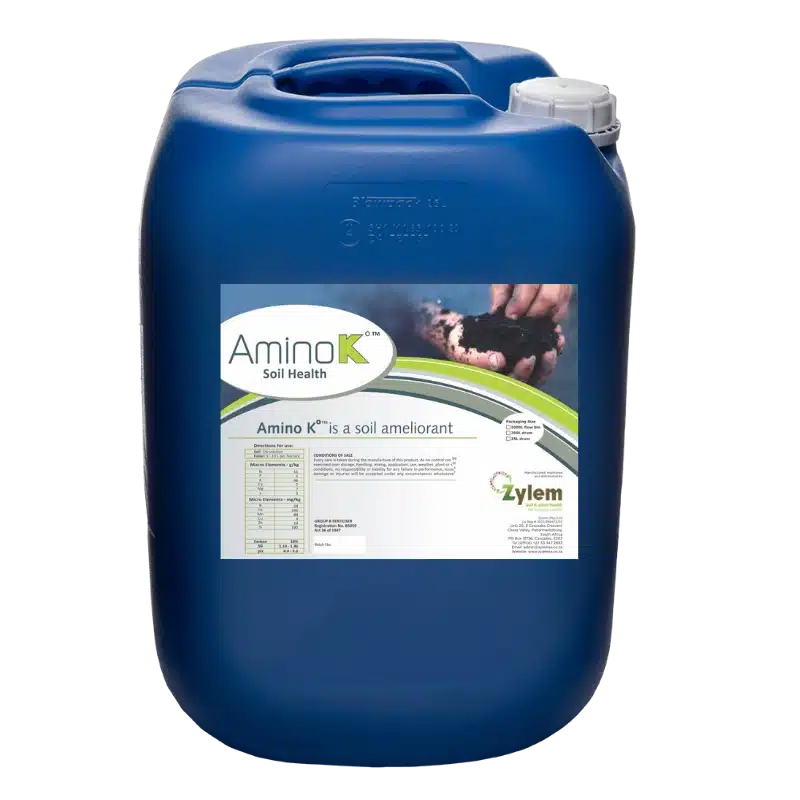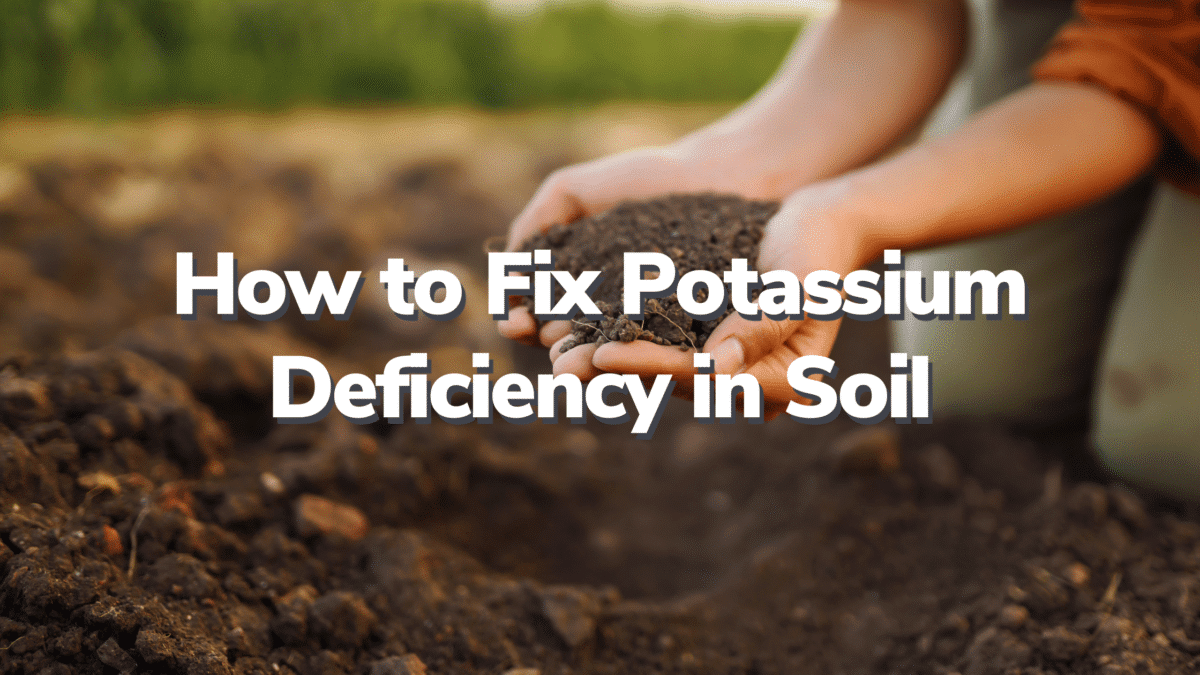Modern industrial agriculture heavily depletes soil nutrient resources, including potassium (K). This declining soil fertility is the main cause of year-to-year variability of harvested yields. If we are to farm sustainably and produce food for future generations, we need to improve potassium management and potassium availability in soil. So, how do you fix potassium deficiency in plants and soil?
In this blog post, we’ll discuss the role of this important mineral and suggest some solutions to increase potassium availability in soil and prevent the effects of potassium deficiency in plants.
Why is potassium important to plants?
Potassium assists all functions within the plant and is one of the most crucial nutrients required by crop plants to maintain health and vigour. During the early stages of growth, the accumulation of potassium precedes the accumulation of nitrogen. Therefore, the supply of potassium to plants seems to be necessary for the utilisation of nitrogen, thus significantly affecting the growth rate and potential yield of plants.
Potassium is involved in many plant physiological reactions, including:
- Protein synthesis
- Osmoregulation
- Enzyme activation
- Internal cation/anion balance
- Photosynthate translocation
- Proper water relations
The effects of potassium on plants include:
- Faster growth
- Better water utilisation
- Improved tolerance of external stresses
- Drought resistance
- Disease and pest resistance
- Greater yields
Signs of potassium deficiency in plants
Because potassium affects plant performance in general, it can be difficult to pinpoint specific signs of potassium deficiency in plants and crops, other than overall poor plant health. However, if the potassium deficiency is severe, you may be able to see some signs in the leaves, such as brown spots, yellow edges, yellow or brown veins.
Potential signs of potassium deficiency in plants:

Protecting potassium in the soil
In many parts of South Africa, there is enough potassium stored in the soil. Over time, however, continual cropping depletes these reserves. Growing vegetables, fruits and legumes removes large quantities of potassium from soils, and when more potassium is removed in harvested crops than is returned to the soil, this results in a negative potassium balance.
Maintaining adequate potassium in the soil is essential for both organic and conventional crop production and is essential for sustaining food production. That’s why we need to focus on sustainable potassium management.
The goals of sustainable potassium management:
- Reducing year-to-year variability of harvested yields
- Increasing water efficiency
- Increasing the efficiency of potassium use
- Decreasing the impact of agriculture on the local and global environment
How to fix potassium deficiency in soil
Zylem’s Amino K°™ is a potassium input that enhances soil crop production from the ground up, encouraging the development of robust, healthy plants, even in adverse conditions.

What is Amino K°TM?
Amino K°TMis a liquid soil ameliorant. It is a natural by-product of the sugar industry as the end-product of yeast fermentation of molasses.
What does it do?
Amino K°TM contributes to overall soil health by endowing soil microbes with the benefits of metabolites. In combination with consortia microbes, Amino K°TM helps to break down organic matter and return it to the soil. It does this while retaining the more complex chain sugars and brix levels associated with molasses, contributing to overall soil health.
Who should use Amino K°TM?
It can be applied to all crops across all areas of South Africa.
What are the main ingredients?
Amino K°TM contains 4% potassium and other macro and micro elements (such as silicon and enzymes), which increase plant vigour when applied to the soil through irrigation systems.
A crop-improving combo
When soil moisture levels are low, potassium is one of the first elements to be affected, which has a knock-on effect on plant health. In such instances, using potassium as a foliar application will avoid the negative effects of moisture stress. A commonly used remedy in such instances is the addition of +-5kg potassium sulphate per hectare + 2L/ha SeabrixTM.
| How do macadamia farmers increase potassium in soil? Zylem’s K-Mac is a foliar feed designed specifically for macadamias. Adequate potassium is essential to maximise nut size. With the inclusion of fulvic acid, K-Mac is perfectly balanced to provide required levels along with the essential trace minerals associated with efficient cell metabolisation. |
Want to learn more about potassium availability in soil? Get in touch with the Zylem team for soil testing and remediation services. We will happily advise on crop-specific requirements and applications.

About the Author: Alex Platt
Alex is Business Development Manager at Zylem. He’s inspired by the potential of regenerative farming and takes a special interest in the technology and products that are moving agriculture in a more sustainable direction.

